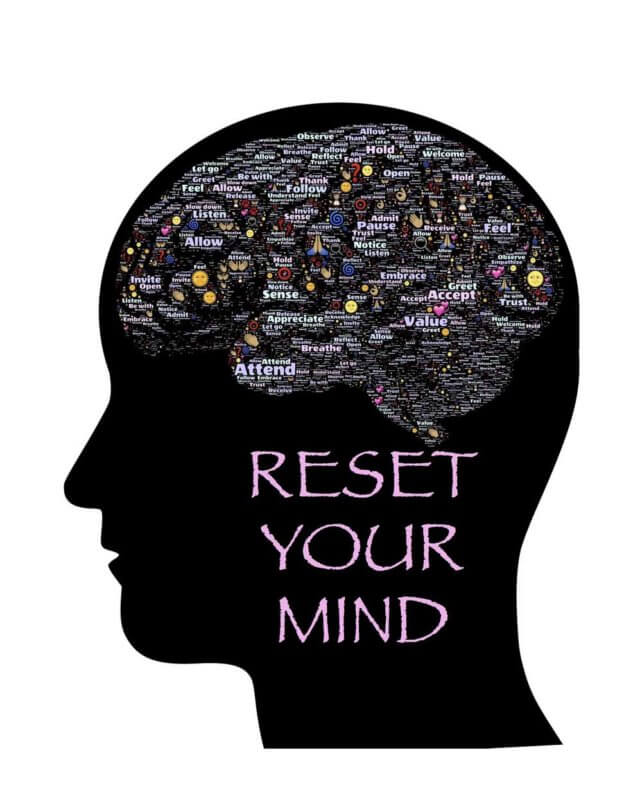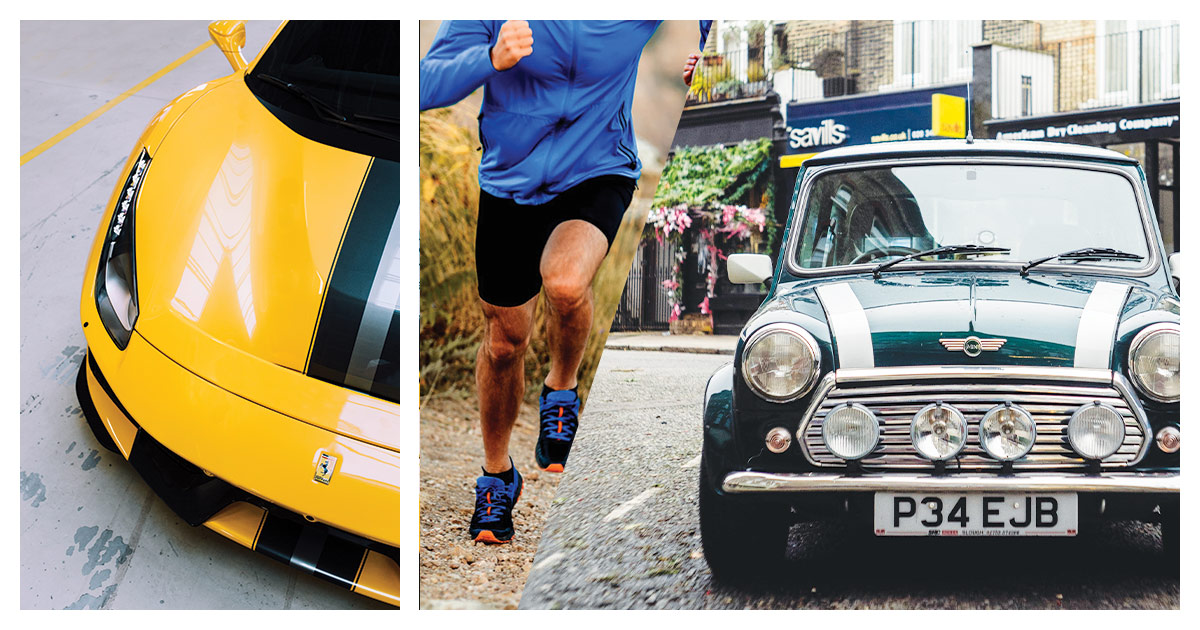Some of us are born with a Ferrari for a brain, others a Mini. However, the car you are born with isn’t as important as how well you learn to drive it. Straight road – easy task the Ferrari will win. When there are curves, challenges, obstacles to overcome, the driver who has learned how to drive their car best will win.
Edward de Bono’s car analogy (habits of mind)
I like to use this analogy for physical performance. Some of us are bestowed with better physical attributes than others. I definitely wasn’t blessed with a body like a Ferrari for endurance running. But that wasn’t going to stop me. I simply needed to learn how to optimise and adapt my vehicle so that it performed to the very best of its ability.
I knew that there would be obstacles I would need to overcome. At the same time, I recognised the importance of accepting – and indeed, embracing – my particular physique. I needed to examine how my body behaved under different stresses in order to ensure that my training regimen suited my unique set of requirements.
At this point, you’re probably thinking that this all sounds a little vague and non-specific. Stick wtih me, as I explain my rationale in more detail below.
DEVELOPING A GROWTH MINDSET

As I’ve grown older and my brain has developed, I have become increasingly proficient at self-reflection. I am now more metacognitevely aware of why I respond in certain ways to different situations (I have to confess, though, that it took me about 35 years to grow up!).
As a Specialist Classroom Teacher of College students, I was able to explore Growth Mindset strategies that related to students and their learning. I have since extrapolated those strategies from the “intelligence or learning” form, to the “physical form” too.
A key principle from the Growth Mindset approach, is that you don’t have to have a gift to be successful in any particular discipline. Rather, what you need is the right attitude. By way of illustration, top sportsmen and sportswomen are not born – they are made. There are many athletes who have achieved at the highest level because they have adopted a Growth Mindset, and in this regard, Michael Jordan springs to mind as the perfect example.
World Chess and Martial Arts Champion!
Then there was Joshua Walitzkin’s story of success in two disciplines – the intellectual as the World Chess Champion, and physically, with his martial arts.
Eduardo Briceño, in his TED Talk on the Power of Belief, shares Waitzkin’s story. Waitzkin developed his knowledge of Growth Mindset by taking the lessons of success he had learned through competing with the toughest chess competitors in the world and applied that formula to gain immense success in many other areas during his life, including becoming a Martial Arts World Champion.
So, is Josh Waitzkin just a freak? Gifted both intellectually and physically? Or, is he successful because he has a Growth Mindset? Waitzkin once said,
“The moment we believe that success is determined by an ingrained level of ability, we will be brittle in the face of adversity.”
Growth Mindset or a Fixed Mindset?
Eduardo Briceño articulates that the way we understand our intelligence and abilities deeply impacts upon our success. Relating to real life examples and social science research, Briceño explained how mindset, or the understanding of intelligence and abilities, is crucial.
Fixed Mindset
People who are in a Fixed Mindset believe that the qualities they have are fixed traits and, therefore, cannot be changed. They also believe that talent alone leads to success, and effort is not required. Consequently, they avoid challenges, view things negatively and often lose interest when things get difficult. In other words, the more effort they have to put in, the less good at it they must be.
Growth Mindset
People with a Growth Mindset understand that abilities are developed over time. Thus, they are more ready to embrace measures that are required to help them achieve success. Such measures and attitudes include deliberate practice, challenging themselves, and determination.
A take away message from this is that we can all adapt and improve upon every aspect of ourselves. Most successful people don’t have a gift. Sure, some people have physical attributes that suit different sporting disciplines. However, the most successful athletes aren’t that way because of their ‘gift’, but because of their Growth Mindset. They know that with the right amount of effort and discipline, they will succeed.
From athletes to musicians to chess champions, research has shown that the greatest indicator of success is not talent but, rather, a champion’s mindset.
Can you think of any fixed self-limiting beliefs that have held you back from achieving your dreams?

Deliberate Practice
Success isn’t genetic
but rather
Deliberate practice
Anders Erricsson
Anders Erricsson conducted a Study* into the recipe for success in the areas of academia, sport and the arts. What he concluded, was that, in order to become an expert, you must adopt the role of Deliberate Practice. His key findings can be summarised as follows:
- It takes approximately 10,000 hours to master a skill.
- Successful people focus on areas that they can’t yet do well.
- These things are not necessarily “new”, but more likely just at the edge of their competence.
So, have you run for 10,000 hours? I know I haven’t……yet. So, will I get better?
Key Messages
For me, one takeaway from this research is that I need to be patient. Just like learning a new language or musical instrument can’t be mastered overnight, neither can running. So, I need to keep running, and build my base fitness. I must give my body a chance to adapt to the Deliberate Practice. This will result in the creation of more mitochondria and fast twitch fibers which act like slow twitch fibers.
Another key message that I took away from Ericcsson’s findings, was that I needed to focus on areas that I wasn’t doing well – yet! For me, that was my eating plan for training and for racing. I kept getting the sugar lows during my long runs (sometimes my shorter runs). This mean’t I was repeatedly ‘hitting the wall’. Relying on carbohydrates as my go to for energy wasn’t working for me. I needed to teach my body to become increasingly efficient at burning fats for energy.
In my next post, I talk about how I used growth mindset to change my eating, sleeping and running habits to make me faster.
*The Role of Deliberate Practice in the Acquisition of Expert Performance


